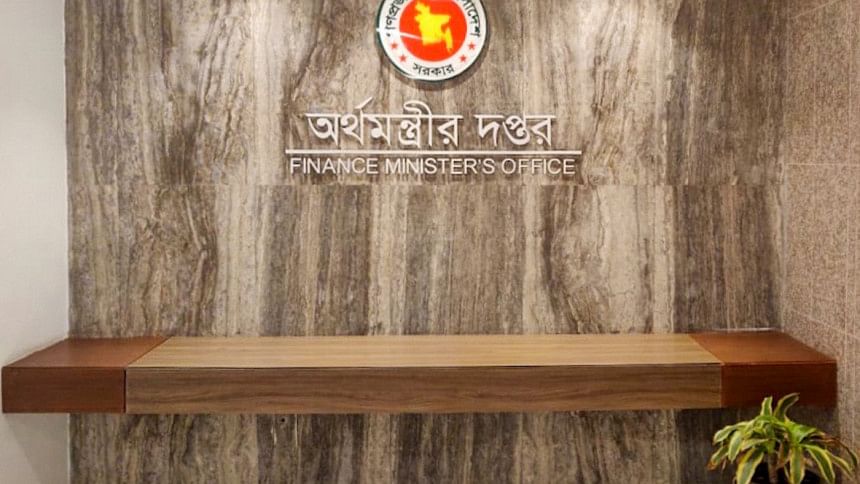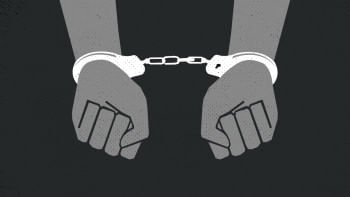Bring on fiscal policy

If there ever was a challenging time for fiscal policy, this is it! The budgeting season for the government has started amidst a potential global health and economic crisis whose depth and duration are as uncertain today as when it started.
The uncertainties are not likely to dissipate in the near future. Bangladesh is highly vulnerable to the public health and economic risks. There is limited fiscal space with deficits and public borrowings already on the rise for the past year and a half.
Revenue mobilisation and expenditure prioritisation will be hugely challenging. The capacity to borrow from domestic sources without causing harm to industry and financial markets will face more severe tests.
Business as usual in both the revised budget for fiscal 2019-20 and the new budget for fiscal 2020-21 will not do. Thinking out of the box is now at a premium.
The health and economic challenges are defining themselves. The primary goal of fiscal policy has to be to expand the capacity of the health system to test, quarantine and treat more patients.
Even though the virus has not yet spread in Bangladesh to an extent seen in East Asia, Iran, Europe, and America, not to mention several others, the risk to public health is immense and growing by the hour.
Fighting the virus is therefore the overarching priority. The question now is not whether to increase the public spending on health; the question is how quickly and effectively this can be done.
Sadly, the authorities do not yet seem to have fully woken out of their slumber. Yet many have gone into self-lockdown and social distancing.
The consequent disruptions to production and trade have both short- and long-term costs. But the short term deserves the highest priority and urgently needs a robust fiscal response.
If there ever is a time to be short-sighted, it is now.
The consequences of the non-fiscal measures, in place and hopefully yet to come, to flatten the spread of the virus requires a fiscal response to flatten the economic costs curve, not just over time as in the case of COVID19 spread, but also across different affected groups.
This will inevitably kink the fiscal deficit curve for a year or two the least. Such a kink is unavoidable.
The economic impact of the behavioural and policy response to fight the virus is likely to be deep and wide enough to be beyond handling through fiscal readjustments within the existing resource envelope.
Some readjustments -- fiscal austerity in areas where expenditures are less critical (festival bonuses, travels, untargeted subsidies, vanity projects) -- are needed for sure, but they may not touch more than the surface of the problem.
We need bold and creative initiatives to make the costs of the livelihood disruptions bearable at the point of incidence.
The right combination starts with public health policy in the driver seat to limit human contagion. Fiscal and financial policies need to contain the economic contagion.
For now, the sorts of response required are: to support individuals, in the informal and formal sectors, who lose income; help affected businesses to prevent this situation from having long term damaging effects; and ensure the delivery of public services.
Providing support to households dependent on livelihood from informal sector will be the biggest challenge. It will require broader and continuous access to safety net programmes.
This should be the new key focus of the revised fiscal 2019-20 budget and the fiscal 2020-21 budget.
Too many Bangladeshi households live on the financial edge in the informal sector. They need support whether or not they meet eligibility requirements for safety net programmes.
Of the total 60.8 million employed in 2016-17, 85 per cent were in the informal sector.
Many of them are on the brink of losing their daily income even without a lockdown.
If they each are provided Tk 3,000 per month (slightly above the upper poverty line) for three months, it will cost about Tk 46,500 crore, which is equivalent to 1.8 per cent of GDP.
This would require doubling the existing social protection budget (not including public pension payments).
The challenge will be identifying and reaching them since, by definition, they are not registered. However, many have mobile connectivity.
A joint effort involving the non-governmental organisations working in the informal sector, mobile financial service providers and the government will be needed to deliver social assistance to them.
More generally, the government should fix holes in the safety net and create exceptions for the unique circumstances of the current crisis.
The government will need to ensure that the system can cope with an increase in the number of beneficiaries.
Potential options for providing income support to households dependent on the formal sector include: providing unconditional cash aid, reducing tax withholdings to boost take home pay and reducing or even eliminating temporarily all advance taxes on individual incomes and financial wealth.
Tax concession will not be of much use for the lowest-income individuals with little financial wealth.
There are about 6 million employed in the formal sector. A shutdown of the institutions they work for will put their livelihoods at risk.
If they are provided the same cash assistance as workers in the informal sector, it will require another Tk 5,400 crore, which is equivalent to 0.2 per cent of GDP.
Identifying and transferring cash to them through the mobile financial service platform should not be that big of a challenge.
Many small and mid-size firms could face extreme pressure to cut employment.
Relief to households would not necessarily help firms because many households will limit their spending beyond necessities until the public health risk is over.
One way to try to shift their incentives -- and provide the financial means to retain payroll -- is to partially finance payroll of firms based on the number of employees retained.
One specific option is to allow payroll support for a limited period (say three months) for up to, say, 50-100 employees working at least half time, up to a monthly wage of, say, Tk 20,000.
These caps would make sure the government is not sending handouts to already profitable large firms or giving large payments per employee to small firms made up of highly paid professionals.
The goal would be to provide relief to relatively small businesses trying to keep workers on the payroll while staying afloat. Cutting hours, employment or wages would reduce the payments.
Efforts to keep businesses afloat is probably the most important from economic sustainability point of view.
Reduction in exports and consumer demand will force liquidity constrained companies out of business despite being viable post-crisis.
This would impair the longer-term productive capacity of the economy. One option is for the government to suddenly stop the operating payments firms need to make.
Bangladesh Bank has already put a moratorium on loan repayments for 6 months until June 2020 and relaxed foreign exchange regulations for trade transactions until September 2020.
In addition, tax payment deadlines could be extended. None of these actions would stop a recession or even cause a recovery, but they could generate space for some firms during the acute phase of the crisis.
The government should consider providing wider support to the economy based on economic data.
It may be impossible to prevent some economic contraction given the social distancing.
To put circuit breakers on recession, the government should adopt policies with automatic triggers that kick in over time if the economy stays weak, including additional payments to households and businesses.
Specifically, if the employment-to-population ratio falls half a percentage point in the next six months, then more direct payments could go out to individuals, with another round of payments a year from now if the employment rate remains below what used to be normal.
These policies would provide ongoing support for the economy in the event of a deeper recession. Stronger labour market monitoring will be needed to make it work.
Fiscal stimulus package needs ideally to be timed to kick in when draconian social distancing measures are eased, and international connectivity begin to be restored. This will take at least 6 more months, optimistically speaking.
The package can include a mixture of individual and corporate income tax adjustments. Breaks in individual income taxes may bring relief to some without much mileage because of the very low base.
The reach of value-added tax, supplementary duty and customs duty are much wider.
An across the board temporary downward adjustment in these rates could boost consumption spending by lowering prices and/or boost investment spending by increasing profits.
Cuts in corporate income tax rates, advance income taxes of all sorts in particular, will boost both business profits and liquidity. This is an opportunity to reform corporate taxation to make it simpler and more investment friendly.
Tax cuts will surely reduce an already low tax-GDP ratio. However, instead of paying businesses through various subsidies, it may be more efficient, both from accessibility and liquidity points of view, to collect less from business in the first place.
Tax administration reforms to reduce the wedge between what the taxpayers pay and what the government collects could be a win-win for the public and the government.
Public expenditure stimulus should be through boosting infrastructure such as road rehabilitation and maintenance, river dredging, electricity transmission and distribution lines, water supply and sanitation systems and digitisation, among others.
This is also an opportunity to reform the Annual Development Programme by downsizing, if not dropping, the political elephants that neither stimulate demand nor build productive capacity.
Fiscal provisions will have to ensure that public services can continue to operate. For example, some additional funding might be needed so that temporary staff can be engaged during periods when employees are not able to work.
Obvious settings where this could help ensure service delivery will include the use of outsourced nurses and paramedics in hospitals. Partnership with health care providers outside the public sector will be a key.
The scale and impact of the virus remains hugely uncertain. So policymaking is difficult.
Policies need to be robust to different eventualities and flexible in the face of change. Longer-term policy adjustment may also be needed.
This could come from lessons learned from the experience of this year.
These issues can be left to future budgets, when the actual scale and duration of the coronavirus outbreak will be more predictable.
For now, the finance minister should be focusing on ensuring the continued delivery of public services and measures to minimise the economic damage.
Interventions to protect the vulnerable and steer the economy out of a prolonged recession are needed whether or not the Bangladesh Bureau of Statistics recognises it.
The required additional financing will have to be mobilised through tapping external financing windows, domestic borrowing and monetisation of deficits.
We are constrained in what can be done on the policy response side, much like the capacity of the health system.
The still relatively low, though rising, public debt to GDP ratio allows space for more domestic and foreign debt.
If now is not a good time to borrow more to rescue the economy, then when? When the present is at risk, you borrow from future because there is no future without the present.
Implementation of the fiscal policy response will be challenged by information asymmetries and elite capture.
However, since this is a covariate shock -- one that is all encompassing whose effects are observable -- the risk of not knowing and reaching the affected is relatively low.
There will still be adverse selections with some not hurt and/or able to cope benefiting from the support.
Targeting efficiency will be important, but we cannot let the best be the enemy of the good under such dire circumstances.
With a stronger commitment to transparency and accountability mechanisms, we hope the corruption virus will not terminally infect the effort to reach out to those genuinely hurt and financially incapable of bearing the costs of the flattening of the COVID19 spread curve globally and nationally.
The author is an economist.

 For all latest news, follow The Daily Star's Google News channel.
For all latest news, follow The Daily Star's Google News channel. 



Comments